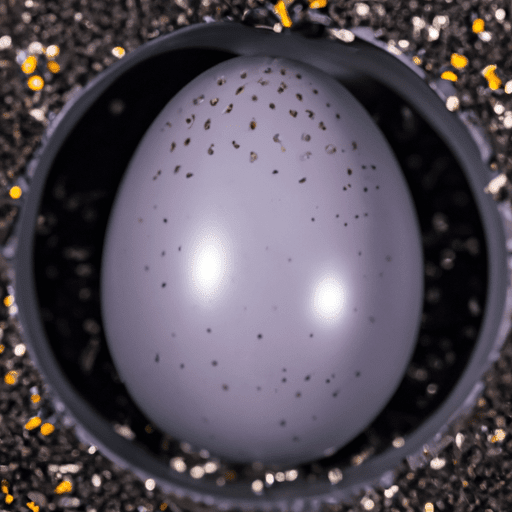How Chia Eggs Can Elevate Your Cooking
Chia eggs, a popular plant-based egg substitute, have gained significant attention in recent years among health-conscious individuals and those following a vegan lifestyle. Derived from the tiny chia seeds, these remarkable little powerhouses add a unique touch to your culinary creations. In this blog post, we’ll explore the taste, common uses, nutritional benefits, and fascinating facts surrounding chia eggs.
Unveiling the Taste of Chia Eggs
Chia eggs possess a neutral taste, making them a versatile ingredient that seamlessly blends into both sweet and savory dishes. Unlike traditional eggs, they do not contribute any distinct flavor of their own, allowing other ingredients to shine. Whether you’re whipping up a batch of fluffy pancakes, baking decadent pastries, or preparing a savory quiche, chia eggs serve as an excellent substitute that maintains the texture and moisture of your final creation.
Exploring the Uses of Chia Eggs in Cooking
The possibilities are plentiful when it comes to incorporating chia eggs into your cooking repertoire. Here are a few common applications:
1. Baking
Chia eggs are frequently used in baking as a substitute for traditional eggs. They help bind the ingredients together, resulting in moist and tender baked goods. Next time you bake cookies, cakes, muffins, or bread, consider replacing eggs with chia eggs for an alluring, plant-based twist.
2. Thickening Agent
Being highly absorbent, the soluble fiber in chia seeds forms a gel-like consistency when combined with liquid. This property makes chia eggs an excellent substitute for eggs in puddings, custards, and even homemade jams. The thick, pudding-like texture adds a delightful mouthfeel and enhances the overall experience of your culinary creation.
3. Vegan Scrambled Eggs
To recreate the texture and appearance of scrambled eggs without any animal products, chia eggs offer a practical solution. By combining ground chia seeds with water, you can create a scrambled egg-like base, allowing you to experiment with various seasonings, herbs, and spices to craft a delicious, hearty vegan scramble.
The Nutritional Powerhouse: Chia Eggs
In addition to their culinary benefits, chia eggs boast an impressive nutritional profile. These seeds are loaded with omega-3 fatty acids, providing an excellent plant-based source of essential fats. They are also high in fiber, protein, and various micronutrients such as calcium, magnesium, and phosphorus. Incorporating chia eggs into your diet can help support brain health, promote digestion, and keep you feeling energized throughout the day.
From Ancient Times to Modern Kitchens
Historically, chia seeds have been a dietary staple among ancient civilizations such as the Aztecs and Mayans. “Chia” even derives from the Mayan word meaning “strength.” These cultures recognized the incredible nutritional benefits of chia seeds, valuing their endurance-promoting properties. Fast forward to today, and chia eggs have taken center stage, providing a nourishing alternative to traditional eggs. It’s fascinating to witness how ancient wisdom continues to shape our contemporary culinary practices.
In conclusion, chia eggs offer a versatile and nutritious substitute for traditional eggs in cooking. Their neutral taste and binding properties make them an ideal ingredient, seamlessly enhancing the texture and moisture of your creations. Whether you’re following a vegan lifestyle, looking to incorporate more plant-based foods into your diet, or simply exploring exciting culinary alternatives, chia eggs are a promising addition to elevate your cooking endeavors. So grab a bag of chia seeds, harness their transformative power, and embark on a delightful, egg-free culinary adventure!
Facts about Chia Eggs:
Origin and Common Uses: Chia eggs, also known as chia gel, are a vegan egg substitute made from chia seeds. Chia seeds have a long history of cultivation and were once an important food source in pre-Columbian civilizations in Central and South America. Chia eggs are commonly used as a binding agent in baking recipes as a vegan alternative to eggs.
Preparation: To make a chia egg, you usually mix 1 tablespoon of chia seeds with 3 tablespoons of water and let it sit for about 5-10 minutes until it forms a gel-like consistency. This gel acts as a binder in recipes, similar to the function of eggs.
Nutritional Benefits: Chia seeds are highly nutritious and packed with nutrients. They are a good source of fiber, omega-3 fatty acids, protein, and various minerals including calcium, magnesium, and phosphorus. Chia eggs can contribute to a vegan or plant-based diet by providing these nutrients.
Binding Properties: Chia eggs work as a suitable egg replacement in many recipes because the chia seeds absorb liquid and form a gel-like substance. This gel helps bind ingredients and gives structure to baked goods, similar to the role that eggs play in traditional baking.
Unique Properties: Chia seeds are known for their ability to absorb water and form a gel due to their high content of soluble fiber. This gel-forming capacity also allows chia seeds to be used as a thickening agent for sauces and puddings, or as an egg replacement in other recipes.
Historical Significance: Chia seeds have a rich history dating back to ancient civilizations like the Aztecs and Mayans. They were prized for their nutritional value and were also used as currency. Today, chia seeds and chia eggs have gained popularity due to their versatility and nutrient content, making them a go-to ingredient for health-conscious individuals and those following vegan or plant-based diets.




Use the share button below if you liked it.
It makes me smile, when I see it.